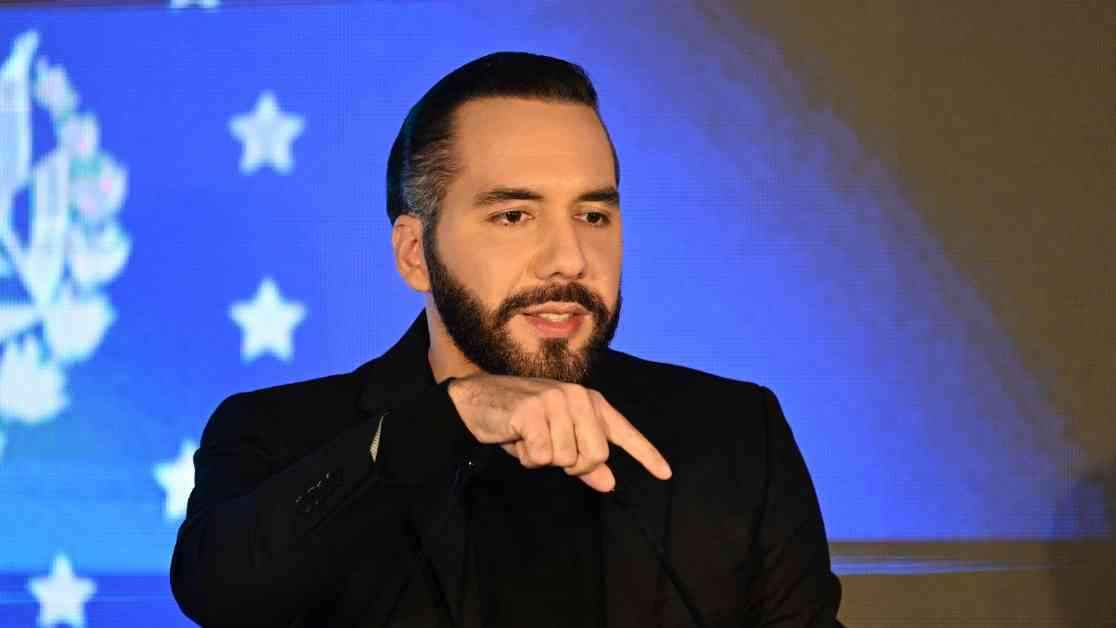President Trump welcomed President Nayib Bukele of El Salvador at the White House amidst a fiery debate over migrant deportations. The meeting between the two leaders comes as El Salvador’s use of the notorious CECOT mega-prison to house deported migrants from the U.S. has sparked controversy. The legal battle surrounding the wrongful deportation of a migrant from Maryland, Kilmar Abrego Garcia, has also captured national attention, with the Supreme Court ordering the Trump administration to facilitate his return.
As the two leaders engaged in discussions behind closed doors, questions loomed about the fate of those deported and the role of El Salvador in the process. President Trump, in a social media post, appeared to shift responsibility to President Bukele for the future of the deported individuals, emphasizing the close collaboration between the two nations in combatting terrorism and fostering prosperity.
In a rare moment of acknowledgement, President Trump praised Bukele for his efforts in addressing security challenges that the U.S. faced, highlighting the impact of the partnership on handling criminal elements that posed a threat to both countries. Despite allegations of human rights abuses at CECOT, Trump maintained his support for Bukele’s actions, downplaying concerns raised by critics.
Challenges and Controversies
The Trump administration’s deportation of alleged Venezuelan gang members to El Salvador has raised questions about due process and the legal basis for such actions. Secretary of State Marco Rubio lauded the ongoing efforts to rid the region of criminal elements, framing the alliance between Trump and Bukele as a model for regional security and prosperity.
Reports of U.S. citizens convicted of violent crimes being sent to the CECOT prison in El Salvador have sparked constitutional concerns, with legal experts warning against such a move. White House press secretary Karoline Leavitt confirmed discussions surrounding this idea, emphasizing that it was raised as a potential option for dealing with repeat offenders who posed a significant threat to American society.
Expert Insights and Legal Battles
Legal experts have pointed out that the Supreme Court’s directive to the Trump administration regarding the return of Kilmar Abrego Garcia underscores the judiciary’s role in overseeing executive actions related to foreign relations. The ongoing legal dispute has highlighted the complexities of managing migrant deportations and the need for clear guidelines to prevent wrongful removals.
As the case heads back to court for further proceedings, the Justice Department’s stance on the limits of judicial authority in foreign affairs has drawn scrutiny. The delicate balance between national sovereignty and international obligations has come into sharp focus, with implications for future deportation policies and diplomatic relations between the U.S. and El Salvador.
President Trump’s meeting with President Bukele represents a critical juncture in the ongoing debate over migrant deportations and the role of sovereign nations in addressing cross-border challenges. The outcomes of their discussions are likely to shape the future of U.S.-El Salvador relations and set a precedent for how countries collaborate on complex issues of security and migration.
In conclusion, the meeting between Trump and Bukele offers a glimpse into the intricate dynamics of international diplomacy and the shared responsibilities of nations in combating transnational threats. The evolving relationship between the U.S. and El Salvador underscores the complexities of modern governance and the imperative of finding common ground to address pressing security concerns in a rapidly changing world.














